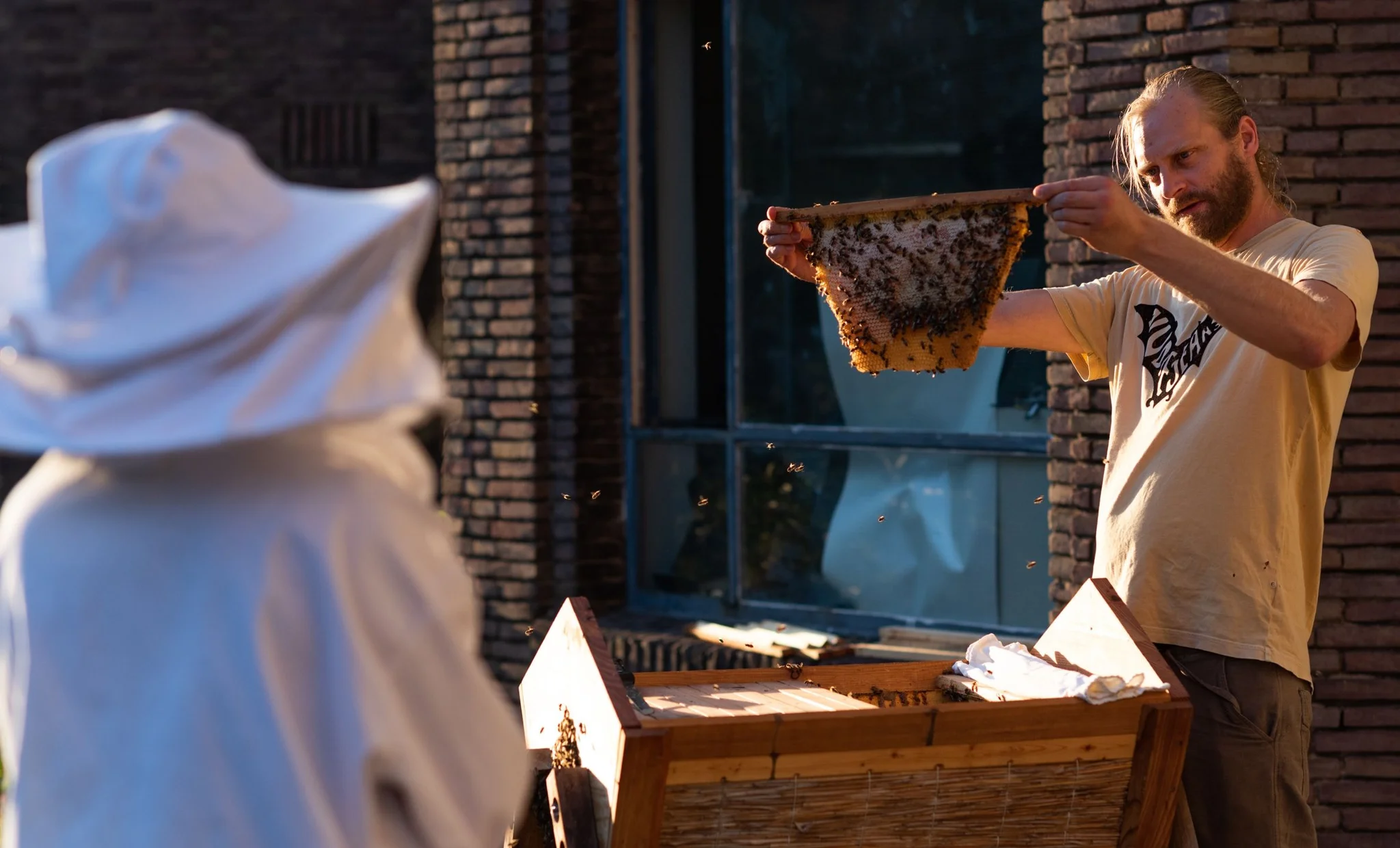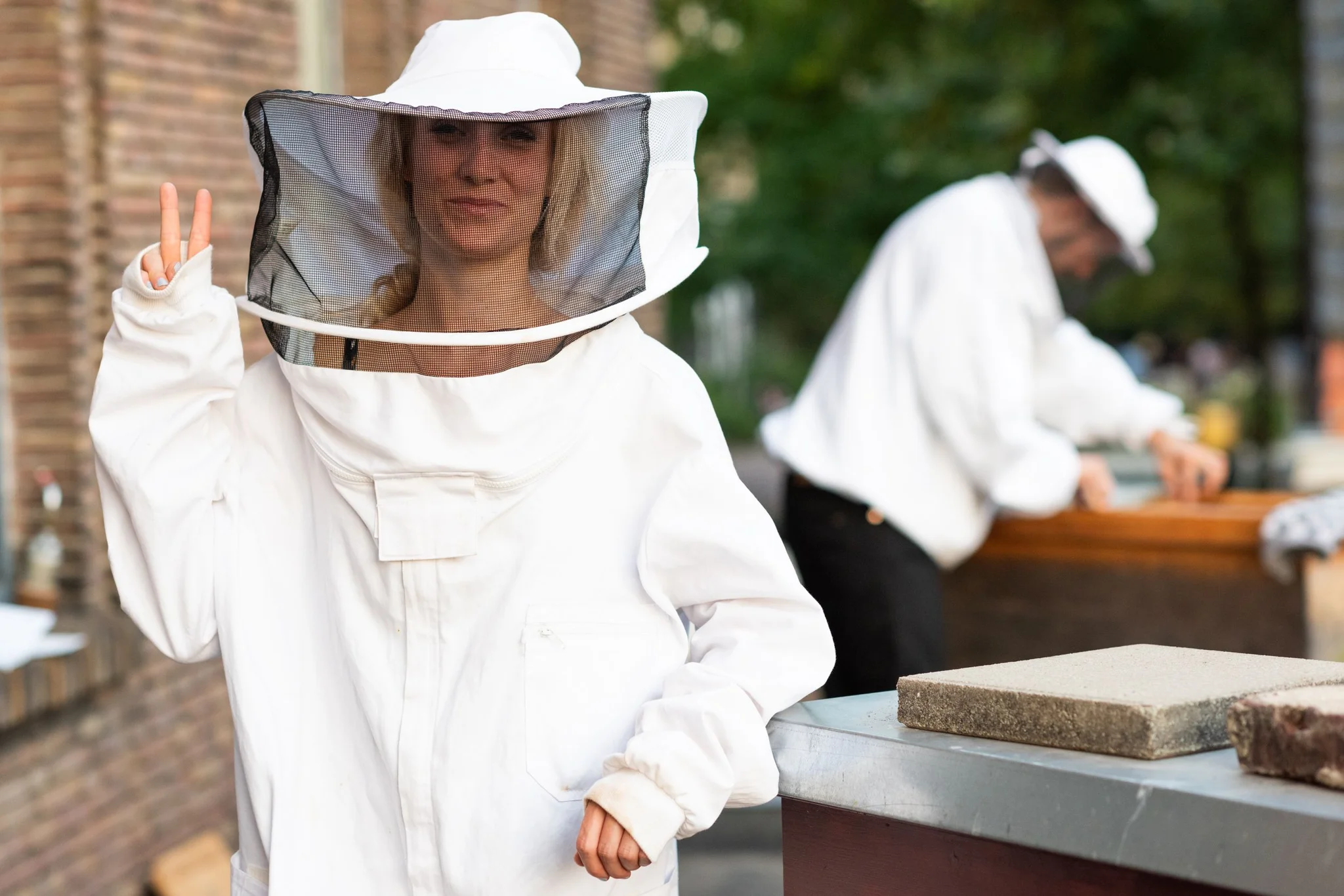Practical Natural Beekeeping-training
Announcement: Due to ongoing construction work around our beehives at Lab111, we unfortunately had to make the decision to postpone the practical natural beekeeping training to the following year. The training will start in the Spring of 2026.
The 2026 English practical beekeeping training for beginners will host a maximum of 14 participants to ensure the bees' well-being and for each beekeeper-to-bee to have enough practical experience.
It consists of 16 gatherings, the following 14 are planned but are subject to change and may be adjusted based on Dutch school holidays:


